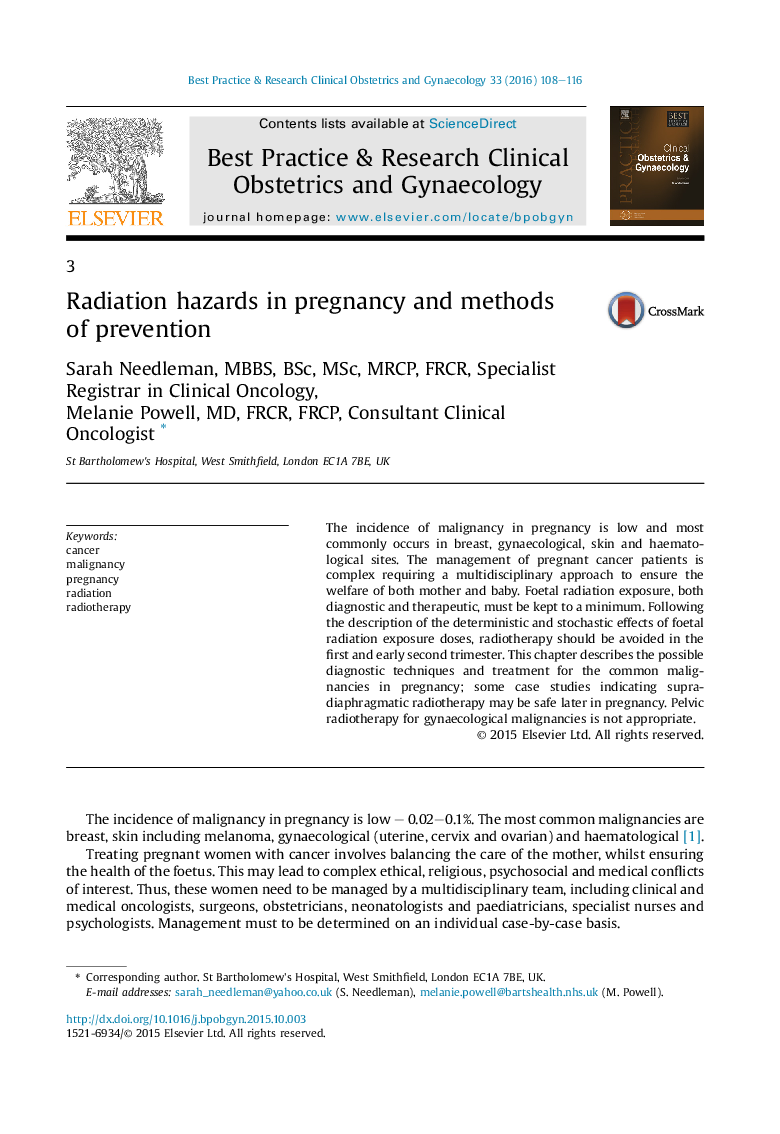| Article ID | Journal | Published Year | Pages | File Type |
|---|---|---|---|---|
| 3907414 | Best Practice & Research Clinical Obstetrics & Gynaecology | 2016 | 9 Pages |
•Cancer in pregnancy is rare. Management should be multidisciplinary.•Foetal radiation exposure must be as low as possible with a maximum dose of 0.1 Gy.•Radiotherapy may be given for supradiaphragmatic cancer in the second and third trimester.•Radiotherapy is not appropriate for intra-abdominal or pelvic cancer during pregnancy.
The incidence of malignancy in pregnancy is low and most commonly occurs in breast, gynaecological, skin and haematological sites. The management of pregnant cancer patients is complex requiring a multidisciplinary approach to ensure the welfare of both mother and baby. Foetal radiation exposure, both diagnostic and therapeutic, must be kept to a minimum. Following the description of the deterministic and stochastic effects of foetal radiation exposure doses, radiotherapy should be avoided in the first and early second trimester. This chapter describes the possible diagnostic techniques and treatment for the common malignancies in pregnancy; some case studies indicating supradiaphragmatic radiotherapy may be safe later in pregnancy. Pelvic radiotherapy for gynaecological malignancies is not appropriate.
